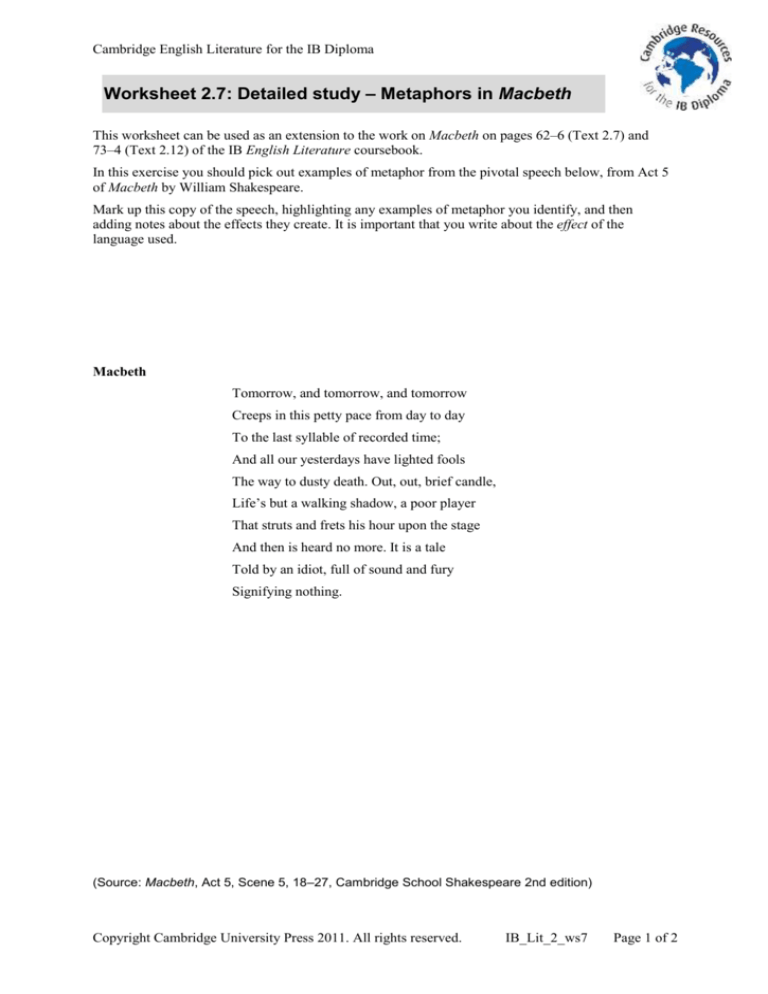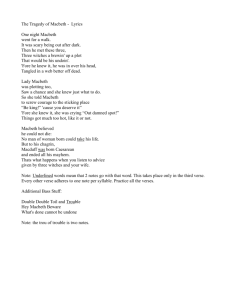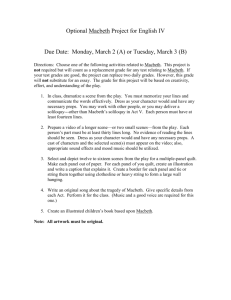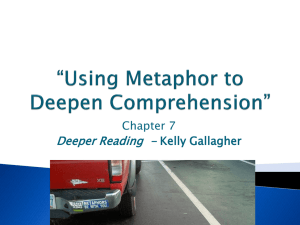
Cambridge English Literature for the IB Diploma
Worksheet 2.7: Detailed study – Metaphors in Macbeth
This worksheet can be used as an extension to the work on Macbeth on pages 62–6 (Text 2.7) and
73–4 (Text 2.12) of the IB English Literature coursebook.
In this exercise you should pick out examples of metaphor from the pivotal speech below, from Act 5
of Macbeth by William Shakespeare.
Mark up this copy of the speech, highlighting any examples of metaphor you identify, and then
adding notes about the effects they create. It is important that you write about the effect of the
language used.
Macbeth
Tomorrow, and tomorrow, and tomorrow
Creeps in this petty pace from day to day
To the last syllable of recorded time;
And all our yesterdays have lighted fools
The way to dusty death. Out, out, brief candle,
Life’s but a walking shadow, a poor player
That struts and frets his hour upon the stage
And then is heard no more. It is a tale
Told by an idiot, full of sound and fury
Signifying nothing.
(Source: Macbeth, Act 5, Scene 5, 18–27, Cambridge School Shakespeare 2nd edition)
Copyright Cambridge University Press 2011. All rights reserved.
IB_Lit_2_ws7
Page 1 of 2
Cambridge English Literature for the IB Diploma
Macbeth’s metaphors for life
Complete the table below for the metaphors used in the speech. Some examples are already completed
for you to help give you a sense of the length and depth required in this exercise.
Try to complete each box.
Metaphor
Quotation
Effect created (with analysis)
Life as a slow
journey
Life as a
candle
Life is an
illusion
Macbeth describes life as a
‘walking shadow’, a mere
representation of reality. The
actor or ‘player’ is ‘poor’ –
reality is substandard. He is
only allowed to act for an ‘hour’
– an obviously short period –
and then his moment when he
‘struts and frets’ is over.
Life is ‘a tale told by an idiot’, so is
represented to us through the voice of a
madman. Macbeth’s take on existence
suggests that he no longer has the human
capacity to feel and that life no longer has
any meaning whatsoever.
Copyright Cambridge University Press 2011. All rights reserved.
IB_Lit_2_ws7
Page 2 of 2









